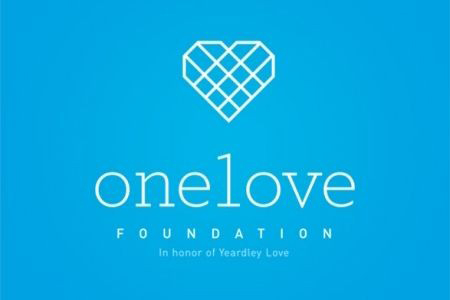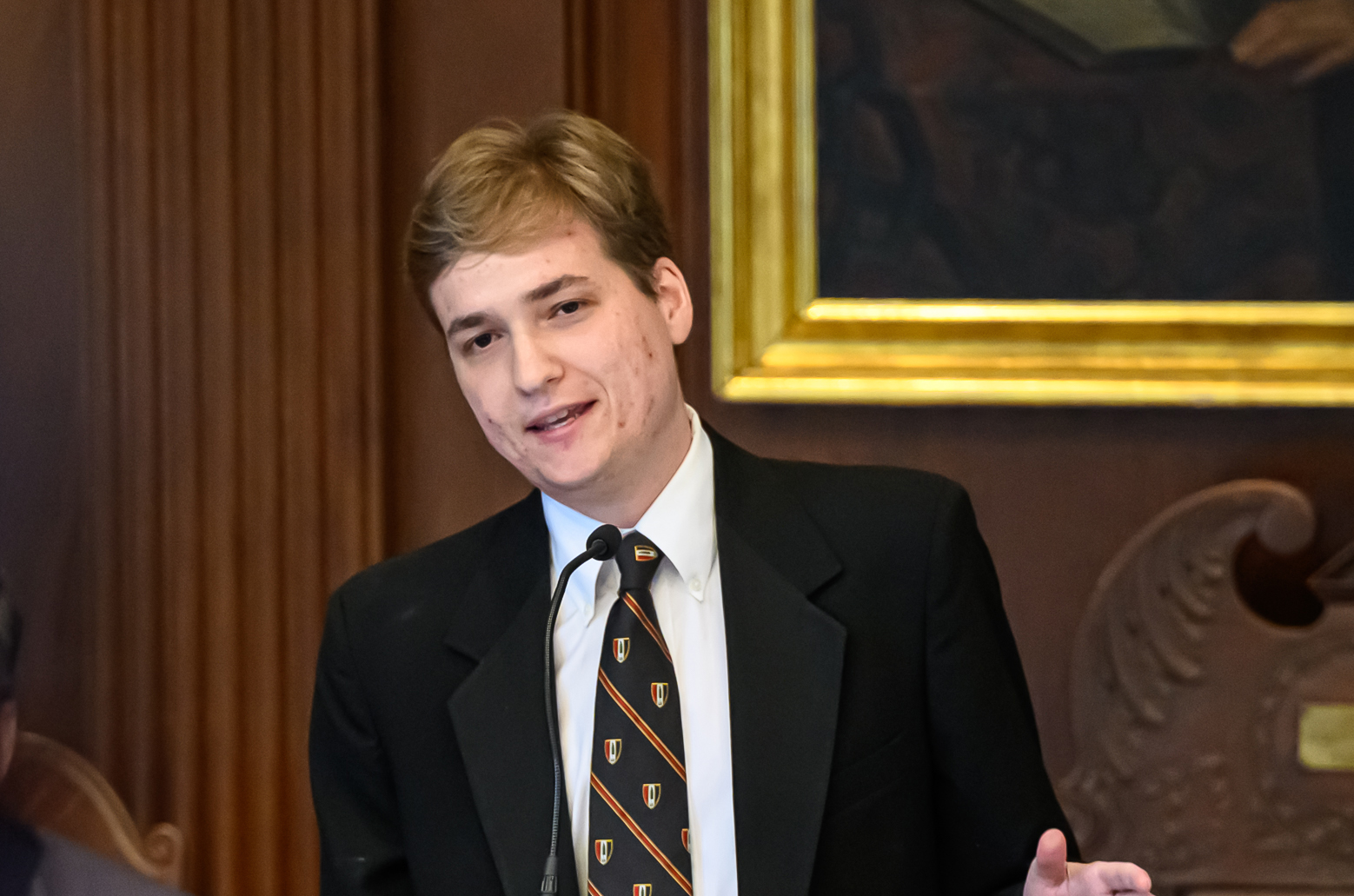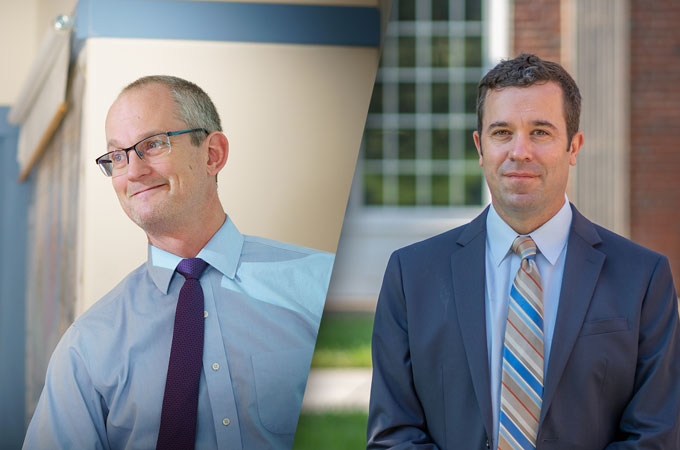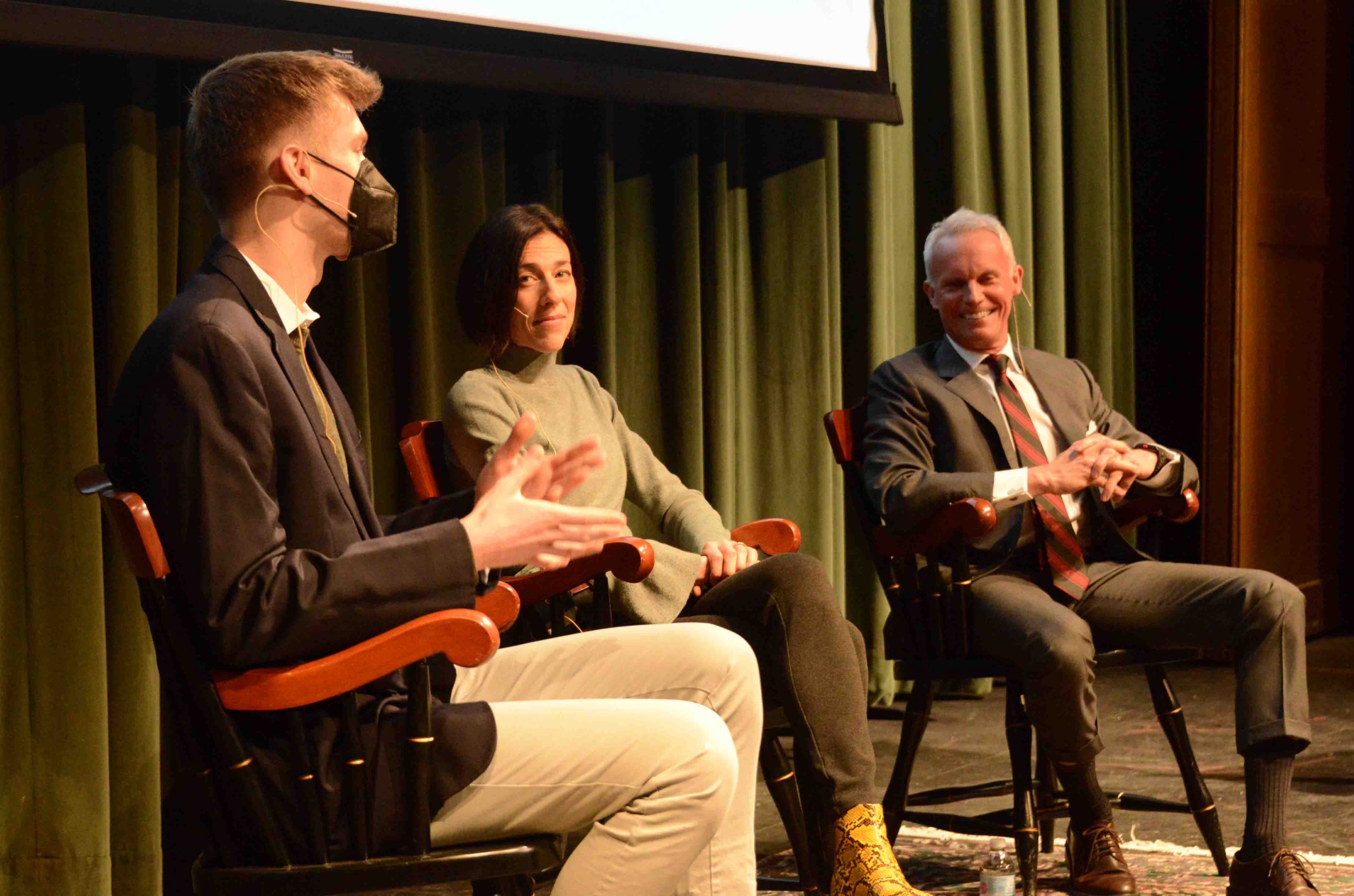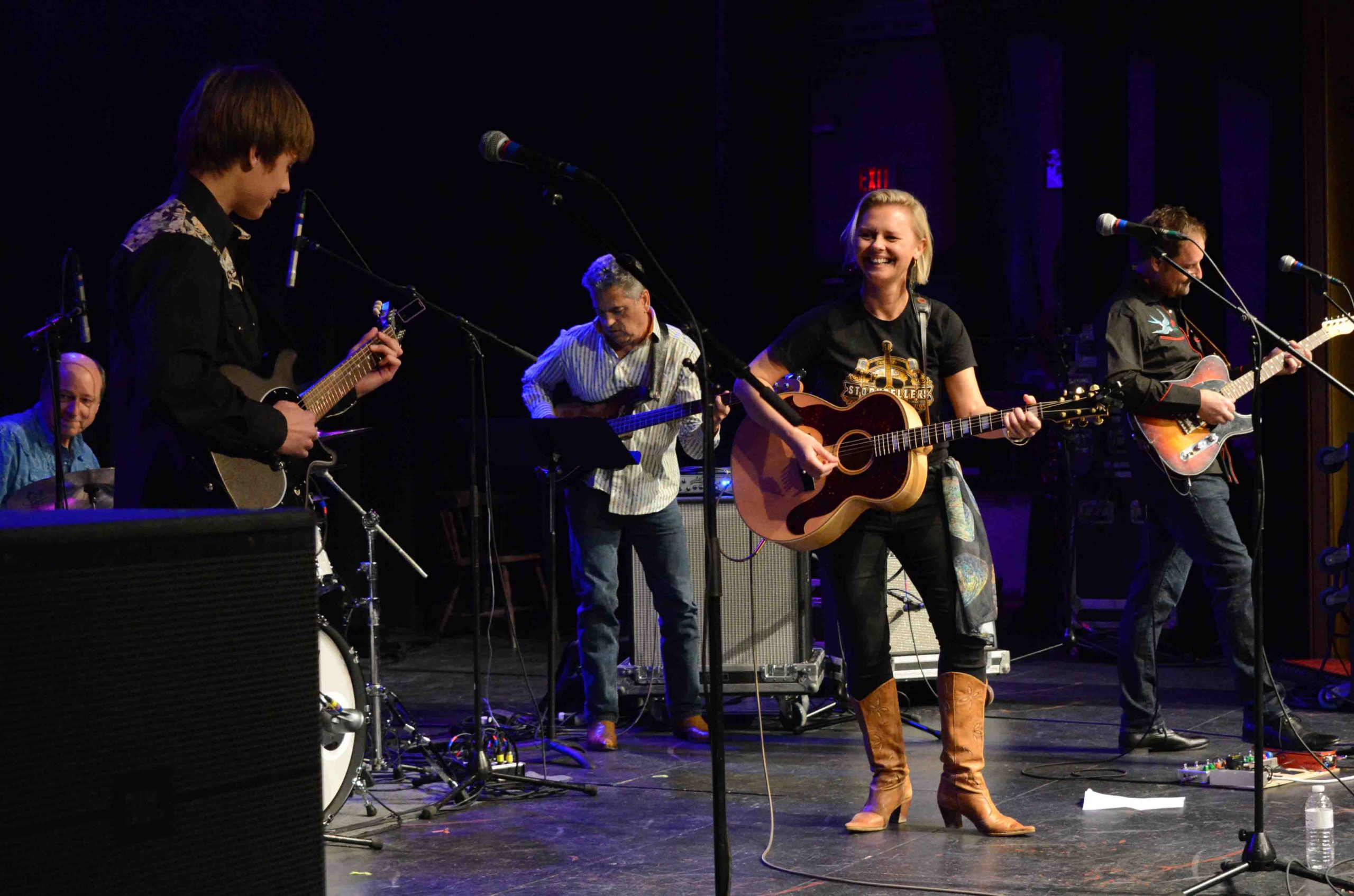Throughout the year, members of the RL community take the stage in Rousmaniere Hall to share their experiences of faith, from a range of religious traditions—especially around the time of annual celebrations. The experience and exploration of spiritual life, in its rich variety of forms, has long been an important part of a Roxbury Latin education.
On April 14, Dr. Andrés Wilson, a member of the English Department, spoke to students and colleagues about his unconventional path to Judaism, his love of the religion’s rich history and traditions, and his understanding and celebration of the Passover holiday.
“I have viewed Passover from contrasting perspectives—as a non-Jew; studying Judaism from the outside in my late teens; as an Orthodox-Jewish convert and would-be rabbinical student in my late twenties, living the tradition while studying its more esoteric elements; and now, as a lapsed, spiritual-but-not-religious cultural Jew and father in my late thirties. I’m happy to share that journey, and what I’ve learned, with you all today.”
“Passover is a weeklong spring-time holiday that commemorates the mytho-historical flight of the Hebrews or Israelites—the nation that would become the Jews—from the slavery and tyranny of Pharoah in Egypt to freedom in Canaan. Essentially, Passover demands each of us in every generation to question what freedom means and what prevents us from achieving it.”
Dr. Wilson walked students through the various “prescriptions and prohibitions” of celebrating the holiday, including eating matzah, or unleavened bread, and participating in ritual dinners called Seders, where those gathered read from the haggadah about the holiday’s lore and symbolism. “Seder means ‘order,’ and this little book provides the order and recipe for the rites of the evening. The most well-known Passover prohibition is the avoidance of certain grains (wheat, rye, barley, oats, and spelt) for the duration of the week, and this interdiction includes their possession as well as their consumption.”
“What was initially a public, national pilgrimage shifted to become a symbolic familial dinner, and now Passover transforms the family dinner table into the altar of the holy Temple, elevating each guest into a Temple priest… However, much spiritual preparation must occur before such transcendent work can take place. Families deep-clean their houses in the days or weeks leading up to it. In a practical sense, it’s spring cleaning; we are enjoined to remove every trace of chametz—leaven grain substances—from our homes. Metaphorically, however, chametz stands for the immaterial aspects of life that obstruct our spiritual strivings—such as materialism, or baseless hatred, or lust. While expunging chametz from my house, I like to reflect on my personal shortcomings: Which habits have narrowed my consciousness, making me a less present or compassionate father, teacher, or friend?”
Dr. Wilson, as he shared, was born into a culturally Christian, but wholly secular, family. “My father is an apathetic Irish-Catholic, and my mother—who had been a Black Panther in the seventies—is deeply spiritual but also suspicious of organized religion. I was fascinated by world religions, reading every book I could find on the topic and exploring every religion I could, including Buddhism, from which I learned the essential practice of meditation—a practice that I continue to this day. To be perfectly honest, much of my love for Judaism was sparked by a love for the Hebrew language… and a girl who spoke it.” (That girl went on to become his wife.)
“The Passover story asserts the essentiality of human freedom,” Dr. Wilson explained. “Spiritually, Passover forces us to take personal inventory of those deleterious mindsets and unnecessary aspects of our lives that hinder our transcendence. Today, I want to focus on three enduring themes of Passover that enlighten my own life: gratitude, questioning, and hopeful wonder.”
Gratitude
“Passover is fundamentally an exercise in giving thanks to God for the foremost miracle in Jewish history—the Exodus from Egypt… Judaism tethers almost every action to an offering of thanks. Observant Jews begin each day by reciting ‘Modeh Ani Lifnanecha…’ (‘Thanking am I before you…’), which is a practice that I continue to do even now. There’s a bracha or ‘blessing’ before and after eating snacks and meals, upon seeing lightning strike, upon seeing a rainbow, and there’s even a blessing that one makes after going to the bathroom. Jewish Law demands that we thank before we are, which results in a seeming negation of the very idea of ‘I’ and whittles away at the ego, leaving in its stead unwavering, objective appreciation. Existence is the only prerequisite for gratitude. We are thankful to God quite simply because we are.”
Questioning
“I’d like to underscore Passover’s—and, really, Judaism’s—insistence on questioning, on seeking but not necessarily finding answers. Unlike other religious traditions, Judaism stresses the primacy of action over faith, and action stems directly from seeking, studying, and questioning. Thus, a major aspect of the Passover Seder is to relate the story of Passover to our children, but not dogmatically. As a father, it is my responsibility to relate the mythic narrative to my own children, and I always do so in a spirit of debate and questioning in which ‘answers’ are not decisive, but rather are springboards for further questioning—an approach that I also bring to the classroom as a teacher. In life as in literature, the best answers are the best questions.”
Hopeful Wonder
“We conclude the seder by joyfully singing, ‘Bashanah haba’a b’yerushalayim habanuya,’ which translates to ‘Next year in a rebuilt Jerusalem.’ The seder concludes with the hope and aspiration of being in a rebuilt ‘City of Peace,’ with a rebuilt temple, in which Passover can truly be celebrated. It expresses the longing for a future utopia in a place in which peace flourishes, bondage has been eradicated, and no one is left hungry.”
“A Zen Buddhist saying cautions not to mistake the moon for the finger pointing to it. All too often I have witnessed Orthodox Jews and many other religious communities making this mistake, stressing dogma, political in-fighting, or faith-based litmus tests over the spiritual ends for which all traditions provide a roadmap. At its best, religion offers us a productive way by which we might channel our awe; it prompts us to be more grateful, and provides practices that transcend the ego. In my twenty years of celebrating Passover, I have found it to be one of Judaism’s most polyvalent and spiritually-productive holidays—a meditation on freedom, spring, and gratitude… I wish I could invite you all to our Passover Seder, but our dining room table is a bit too small. So I conclude with a spiritual charge for each of you, Jew or Gentile. In your own traditions, I challenge you to amplify the features and practices that make you act with more gratitude, compassion, and hopefulness.”

